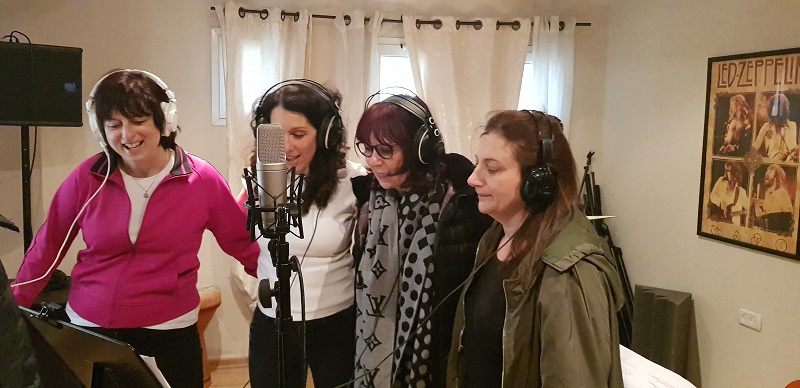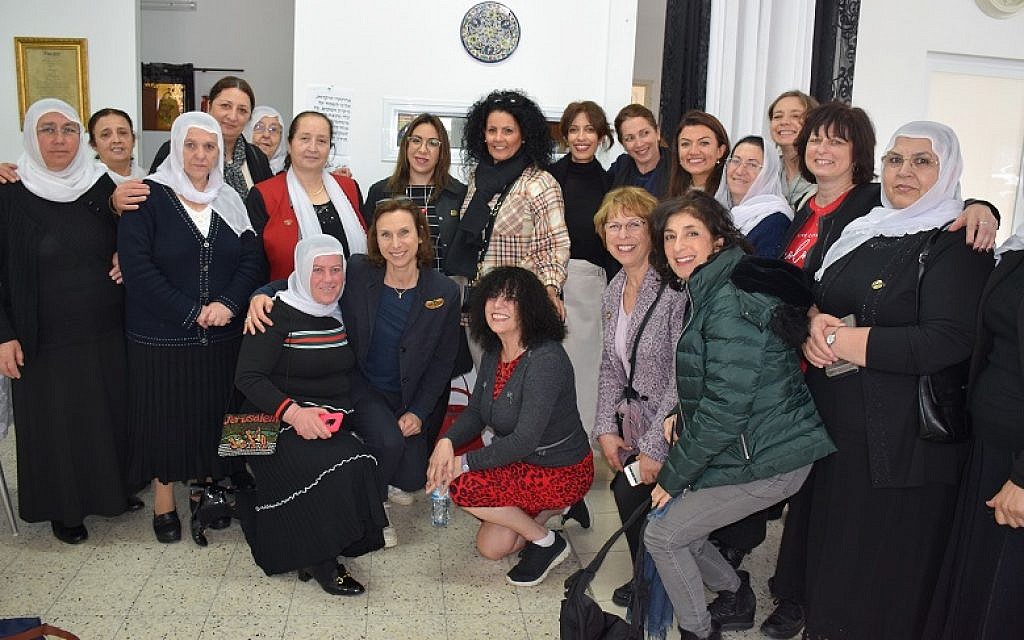‘I didn’t care about anything, but here at WIZO I’ve found my home’
Louise Scodie experiences how WIZO, Israel’s largest social welfare organisation, is bringing hope to thousands of young people and victims of domestic abuse
I’m standing in a busy professional kitchen with three tall and noisy teenagers in chef’s outfits shouting to each other in Ivrit while they chop and mix mince and artichokes.
This is a cooking class with a twist: the students here have come from challenging backgrounds, and they’re not just here to study.
After years of trouble, they’re here to grab their last chance of success at WIZO’s Vocational School in the Rebecca Sieff Centre for the Family, Jerusalem.
Get The Jewish News Daily Edition by email and never miss our top stories Free Sign Up
Our visit is one part of a WIZO UK ‘mission’ to Israel, a trip designed to demonstrate the impact of its work on Israeli society.
WIZO is Israel’s largest social welfare organisation, funding more than 800 projects across the country. These funds are raised by volunteers across the world, who have their own local WIZO groups. WIZO’s work relies on these donations.
WIZO UK sent £1.8million to support the organisation’s projects in 2018 thanks to its 12,000 members and supporters.
Israel, 17, one of the trainee chefs at the vocational school, tells me more about why he’s here.
“I was wild. I didn’t care about anything, I couldn’t stay in school. But I stay here because this place is built for kids like me. I’ve grown up here. After this, I’ll go into the army.”
The point about the army is key. It’s difficult to get employed in Israel without having done national service, so WIZO schools encourage their students to get drafted.

Kobi Hillel, director of the Rebecca Sieff Centre, says the students are just as eager: “They love the army, because for the first time it makes them like everybody else. Ninety percent of our students go into the army – the national rate is 75 percent.”
The sense of care at the school is palpable. Often, the students’ sole support is their teachers. Only 20 percent of parents turn up to parents’ evenings; some students have already left home to live in hostels.
The teachers call their students when they don’t turn up to class; some even use their own money to buy their students clothes and books. The result? Graduates who get jobs, launch businesses and have families, despite their rocky beginnings.
The next day, I find myself chatting with a smiling, colourfully-dressed woman tending to some equally colourful plants. Her sense of cheer is astounding given our location: the Gina Fromer shelter for victims of domestic violence and their children in Ashdod.
Galit, the smiling woman, is the shelter’s housekeeper. I ask how she copes in such a difficult atmosphere. Her answer is surprising: “It’s not an easy job, but I like the hugs in the morning, the warmth and love.”
Sharon Shemesh manages the centre. She explains the residents referred here by the authorities are at the highest level of risk.
They have to pick up and leave home immediately after suffering years of horrific abuse. Sharon explains: “They’re traumatised and often starving. We’ve had all types here – from bank managers to drug addicts.”
The women tell Sharon they can finally sleep peacefully here, while their children also find much-needed relief. There’s an on-site nursery for the little ones, who play in the small garden as we talk.
One toddler clings to her carer’s legs; two little girls pretend to cook together. It reminds me of my own daughter’s nursery. You’d never know how much trauma these children have been through.
Later we head to Daliat El Carmel, a Druze city near Haifa, complete with its own surprising WIZO group. An assortment of Druze women, all wearing traditional white headscarves, welcome us with smiles and snacks. It’s not the image I had of a WIZO group, but these women share a goal with their Jewish counterparts:
to improve the world around them.
Ghada Kamel, the branch chairperson, celebrates her group’s empowering nature.
“Our activities support women in society, like our politics lectures. Our nursery enables women to work while we look after their children. When we started in 1975, women wouldn’t leave the kids or husbands to come here. But the world has changed. Our women know it’s important to come and meet their sisters.”
The trip ends on an inspiring note. We’re at the leafy, colourful campus of the WIZO Hadassim School and Youth Village, north of Tel Aviv, listening to a panel of teachers and students.
One girl, Segal, 17, speaks passionately as she explains her situation: “I was broken, my parents didn’t believe in me. I had to change my environment to achieve my potential. When I got to Hadassim and saw the grass and the view here, I said this is my place. I want to live here.”
Also with us is Sara [not her real name], a domestic abuse survivor helped to escape by a WIZO shelter.
Sara describes her harrowing experience and her powerful testimony elicits a surprise reaction. Segal says: “I realise listening to you that nI was in an abusive relationship. Now I know this, I want to learn how to avoid that again.”
It’s an amazing moment: a teenager who was broken, now empowered enough to talk about her abuse and strong enough to avoid it.
She’s clearly on track to realise her dream – to return to Hadassim as its manager. If this trip was designed to show how WIZO changes lives, then Segal is a shining example of its success.
To find out more visit wizo.org

Thank you for helping to make Jewish News the leading source of news and opinion for the UK Jewish community. Today we're asking for your invaluable help to continue putting our community first in everything we do.
For as little as £5 a month you can help sustain the vital work we do in celebrating and standing up for Jewish life in Britain.
Jewish News holds our community together and keeps us connected. Like a synagogue, it’s where people turn to feel part of something bigger. It also proudly shows the rest of Britain the vibrancy and rich culture of modern Jewish life.
You can make a quick and easy one-off or monthly contribution of £5, £10, £20 or any other sum you’re comfortable with.
100% of your donation will help us continue celebrating our community, in all its dynamic diversity...
Engaging
Being a community platform means so much more than producing a newspaper and website. One of our proudest roles is media partnering with our invaluable charities to amplify the outstanding work they do to help us all.
Celebrating
There’s no shortage of oys in the world but Jewish News takes every opportunity to celebrate the joys too, through projects like Night of Heroes, 40 Under 40 and other compelling countdowns that make the community kvell with pride.
Pioneering
In the first collaboration between media outlets from different faiths, Jewish News worked with British Muslim TV and Church Times to produce a list of young activists leading the way on interfaith understanding.
Campaigning
Royal Mail issued a stamp honouring Holocaust hero Sir Nicholas Winton after a Jewish News campaign attracted more than 100,000 backers. Jewish Newsalso produces special editions of the paper highlighting pressing issues including mental health and Holocaust remembrance.
Easy access
In an age when news is readily accessible, Jewish News provides high-quality content free online and offline, removing any financial barriers to connecting people.
Voice of our community to wider society
The Jewish News team regularly appears on TV, radio and on the pages of the national press to comment on stories about the Jewish community. Easy access to the paper on the streets of London also means Jewish News provides an invaluable window into the community for the country at large.
We hope you agree all this is worth preserving.
-
By Laurent Vaughan - Senior Associate (Bishop & Sewell Solicitors)
-
By Laurent Vaughan - Senior Associate (Bishop & Sewell Solicitors)
-
By Laurent Vaughan - Senior Associate (Bishop & Sewell Solicitors)
-
By Laurent Vaughan - Senior Associate (Bishop & Sewell Solicitors)






















